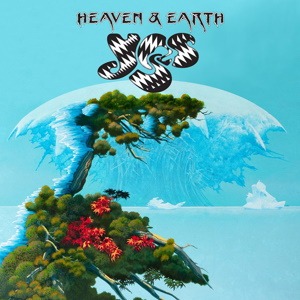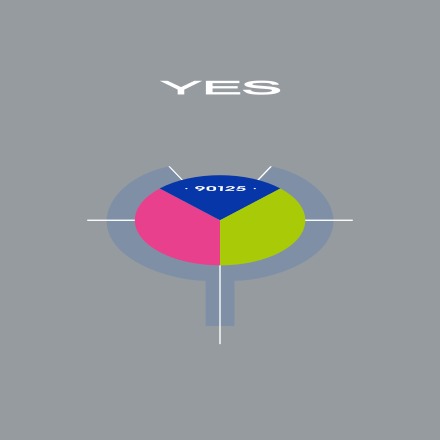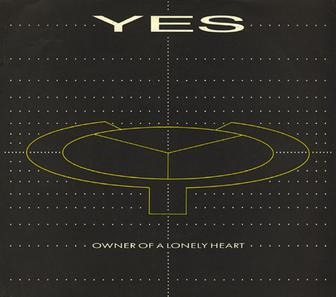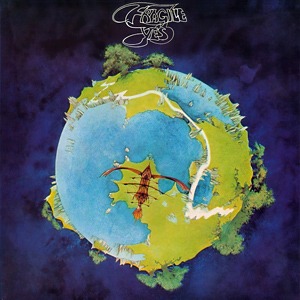Yes Lyrics
Sorted by Album Release Date
(View Sorted by Song Title)
From the Album
1. Believe Again
2. The Game
3. Step Beyond
4. To Ascend
5. In A World Of Our Own
6. Light Of The Ages
7. It Was All We Knew
8. Subway Walls
From the Album
1. Owner Of A Lonely Heart
2. Hold On
3. It Can Happen
4. Changes
5. Cinema
6. Leave It
7. Our Song
8. City Of Love
9. Hearts
From the Single
Owner Of A Lonely Heart
From the Album
1. Roundabout
2. Cans And Brahms
3. We Have Heaven
4. South Side Of The Sky
5. Five per Cent for Nothing
6. Long Distance Runaround
7. The Fish (Schindleria Praematurus)
8. Mood For A Day
9. Heart Of The Sunrise
Other Songs
A Venture
Abilene
Abilene [Bonus Track]
Agree To Agree
All Connected
All Good People
All The Time
Almost Like Love
Amazing Grace
America
And You And I
And You and I: Cord of Life/Eclipse/The Preacher the Teacher/Apoca ...
And You and I: Cord of Life/Eclipse/The Preacher the Teacher/Apocalypse
And You And I I: Cord Of Life
And You And I II: Eclipse
And You And I III: The Preacher The Teacher
And You And I IV: Apocalypse
And You and I (Live 2000) [Live]
And You and I/Cord of Life/Eclipse/The Preacher the Teacher/Apocalypse
Angkor Wat
Apocalypse
Arriving UFO
Arthur
Astral Traveller
Awaken
Be The One
Be The One I: The One
Be The One II: Humankind
Be The One III: Skates
Be the One: The One/Humankind/Skates
Beyond And Before
Big Generator
Birthright
Blue Moon
Bring Me the Power
Bring Me To The Power
Bring to the Power
Brother Of Mine
Brother of Mine: The Big Dream/Nothing Can Come Between Us/Long Lost B
Bumpy Ride
By Design
Calling
Calling [Single Edit]
Can You Imagine
Children Of Light
Children of Light: Children of Light/Lifeline
Circus Of Heaven
Clap/Mood for a Day
Clear Days
Close To The Edge
Close To The Edge I: The Solid Time of Change
Close To The Edge II: Total Mass Retain
Close To The Edge III: I Get Up I Get Down
Close To The Edge IV: Seasons Of Man
Close to the Edge: The Solid Time of Change/Total Mass Retain/I Get Up
Clrcus of Heaven
Crossfire
Dangerous
Dangerous (Look in the Light of What You're Searching For)
Dear Father
Dear Father [Bonus Track]
Dear Father [Early Version #1; Previously Unreleased Track; Bonus Track]
Dear Father [Early Version #2; Previously Unreleased Track; Bonus Track]
Deeper (In the Presence Of) [Live; Bonus Track]
Does It Really Happen?
Dont Go
Dont Kill The Whale
Dreamtime
Endless Dream
Endless Dream I: Silent Spring
Endless Dream II: Talk
Endless Dream III: Endless Dream
Evensong
Every Little Thing
Every Little Thing (Reprise)
Every Second
Everydays
Exxon
Face To Face
Faithfully
Final Eyes
Finally
Fish [DVD]
Fish (Schindleria Praematurus)
Fist Of Fire
Fist of Fire [Alternate Version; Alternate Take; Previously Unreleased Track]
Five Percent For Nothing
Fly From Here: Overture
Fly from Here, Pt. 1: We Can Fly
Fly From Here, Pt. 2: Sad Night At The Airfield
Fly From Here, Pt. 3: Madman At The Screens
Fly From Here, Pt. 4: Bumpy Ride
Fly From Here, Pt. 5: We Can Fly Reprise
Fly From Here Pt I - We Can Fly
Fly From Here Pt II - Sad Night At The Airfield
Fly From Here Pt III - Madman At The Screen
Fly From Here Pt IV - Bumpy Ride
Fly From Here Pt V - We Can Fly Reprise
Foot Prints
For Everyone
Fortune Seller
Friend of a Friend
From The Balcony
Future Memories
Future Times
Future Times/Rejoice
Gates of Delirium
Giants Under the Sun
Gimme Some Lovin'
Give And Take
Give Love Each Day
Give & Take
Go Through This
Going For The One
Golden Age
Great Beyond
Harold Land
He Say She Say
Holding On
Holy Lamb
Holy Lamb (Song For Harmonic Convergence)
Home Alone
Homeworld
Homeworld (The Ladder)
Hour Of Need
How Did Heaven Begin
I Am Waiting
I Hear You Now
I See You
I Would Have Waited Forever
If Only You Knew
If You Only Knew
Ii All Good People
Ii Disillusion
I'm Down
Im Running
In The Presence Of
In the Tower
Intio the Lens
Into The Lens
Into the Lens (I Am a Camera) [Single Version; Bonus Track]
Into The Storm
(Intro) Sweetness
It Will Be A Good Day
It Will Be a Good Day (The River)
Ive Seen All Good People
Ive Seen All Good People I: Your Move
Ive Seen All Good People II: All Good People
Ive Seen All Good People: Your Move
Journey
Journey to the Centre of the Earth
Late Night Tip
Let Go
Life On A Film Set
Lift Me Up
Lightning Strikes
Long Distance Runaround/The Fish (Schindleria Praematurus)
Looking Around
Love Conquers All
Love Shine
Love Will Find A Way
Love Will Find The Way
Machine Messiah
Madman At The Screens
Madrigal
Magic Love
Magnification
Make It Easy
Man In The Moon
Masquerade
Master Ball
Merlin the Magician
Messenger
Messenger [DVD]
Mind Drive
Miracle Of Life
Money
Money [Bonus Track]
New Language
New State Of Mind
Nine Voices
Nine Voices (Longwalker)
No Opportunity Necessary, No Experience Needed
No Opportunity Necessary, No Experience Needed (Remastered O [Original]
No Opportunity Necessary No Experience Required
No Way We Can Lose
On The Silent Wings Of Freedom
Onward
Open Your Eyes
Order Of The Universe
Overture
Owner of a Lonely Heartb
Parallels
Perpetual Change
Picasso
Prophet [Single Mix; Bonus Track; Version]
Real Love
Red
Rejoice
Release Release
Rhythm Of Love
Ritual
Ritual: Nous Sommes Du Soleil
Round About
Run Through The Light
Run With the Fox
Sad Night At The Airfield
Saving My Heart
Say
Set in Stone
Shock To The System
Shoot High Aim Low
Show Me
Show Me [DVD]
Siberia Khatru [Studio Run-Through of Siberian Khatru; Previously Unreleased Track; Bonus Track]
Siberian Khatru
Silent Talking
So High
Soft As A Dove
Solitaire
Some Are Born [Previously Unreleased Track; Bonus Track]
Somehow Someday
Something's Coming
Soon
Sound Chaser
Spirit Of Survival
Starship Trooper
Starship Trooper I: Life Seeker
Starship Trooper II: Disillusion
Starship Trooper III: Wurm
State Of Play
Steve Howe Guitar Solo
Surf
Survival
Sweet Dreams
Sweetness
Sweetness (Intro) [Bonus Track]
Take The Water To The Mountain
Tempus Fugit
That, That Is
That That Is I: Togetherness
That That Is II: Crossfire
That That Is III: The Giving Things
That That Is IV: That Is
That That Is V: All In
The Ancient
The Ancient: Giants Under The Sun
The Ancients
The Calling
The Clap
The Fish
The Gates Of Delirium
The Grind
The Lady Is a Tramp
The Man You Always Wanted Me To Be
The Messenger
The More We Live-Let Go
The More You Know
The Prophet
The Remembering
The Remembering: High The Memory
The Revealing Science Of God
The Revealing Science of God: Dance of the Dawn
The Revelaing Science of God
The Solution
Then
Time And A Word
Time Is Time
To Be Alive
To Be Alive (Hep Yadda)
To Be Over
To Be Over/Clap [DVD]
Total Mass Retain
Total Mass Retain [Single Version; Bonus Track]
Turn Of The Century
Universal Garden
Walls
We Agree
We Can Fly
Where Will You Be
Whispering
White Car
Without Hope You Cannot Start The Day
Wonderlove
Wonderous Stories
Wondrous Stories
Yesterday And Today
You and I
Your Move
Yours Is No Disgrace
From the Album
Yes are an English rock band who achieved success with their progressive, art, and symphonic style of rock music.
Yes are one of the most popular, influential and critically acclaimed acts in the history of. the progressive genre, and have influenced bands such as
Dream Theater and Rush.
They have sold 13.5 million certified units in the US.
-Wikipedia
Also Known As: Yes! (Summer 1968-early 1969)Yes are one of the most popular, influential and critically acclaimed acts in the history of. the progressive genre, and have influenced bands such as
Dream Theater and Rush.
They have sold 13.5 million certified units in the US.
Members:
Steve Howe -
guitars, backing vocals
(1970-1981, 1990-1992, 1995-present)
Alan White -
drums, percussion, backing vocals
(1972-1981, 1982-present)
Geoff Downes - keyboards
(1980-1981, 2011-present)
Jon Davison -
lead vocals, guitar, tambourine, keyboards
(2012-present)
Name Origin:
While the group members searched for an appropriate name, guitarist Peter Banks suggested they called the group 'Yes', a very short and positive word. The others agreed that the name was not meant to be permanent, but just a temporary solution.
According to liner notes from Beyond & Before (1998), Peter Banks' original rationale when he came up with the name was that it would stand out on posters. That the three letters would be made large to take up the available space whenever they were billed. Which would have been pretty clever because if their band had been billed on the same poster with another band with a longer name it would look as if 'Yes' was the main attraction.
From: London, England
Genre(s): Progressive rock, symphonic rock, art rock, psychedelic rock, experimental rock, Classic Rock
Formed: in London in 1968.
Active From: 1968-80, 1983-2004, 2008-present
Associated Acts: Asia, The Buggles, XYZ
Did You Know:
• Jon Anderson did not appear on the YES album Drama. Only Chris Squire has played on every YES
album which is why the courts have given him the rights to the band's name.
Quotes:
It's just adventurous music. Rock is fantastic, but I also like folk and all sorts of music. With YES, in the beginning we played pop music - THE BEATLES, Frank Zappa, THE BEACH BOYS - and it was an extention of that experience, where you're going to do rock music but adventurous, not basic, working from the structure, like symphonic structure, where a lot is going on, and instrumentation, so we expanded on that, we expanded our musical thinking. Then I did that with my solo work and my work with Vangelis, doing different things, writing for dance theater, working with Kitaro and others - it's all experiments in music.
-Jon Anderson
Oh yeah! Thanks to working as a lorry driver, I found "The Cavern". I was driving in Liverpool delivering sugar and flowers, and then I drove around the corner and saw "The Cavern" where THE BEATLES started... and about six years later I was playing there!
-Jon Anderson
I think mostly YES, because YES is very very famous in the world. We sold thirty-five million records, and as a solo artist I didn't sell that many records - maybe four million - but it's my solo work. And now I'm doing the one-man show where I sing and play and talk about my music, I have a projection and animation with me that's very creative. I have a DVD available now of this show, it's just been released in Europe - a very interesting DVD.
-Jon Anderson
I think we all have the same spirituality deep inside and we grow to learn more about it all the time, and we try very hard to become better people as we grow. We search all the time for the truth. We learn more about the world and we can't have thoughts like, "We are better than them" or "They are not good enough for God". This is very bad way of thinking, you know?
-Jon Anderson
Well, we've been collaborating for a few years. We first met when he was doing a record in the late 80's, and it was called Seraphin, (1988) and I did a bit of a guesting on that. And then we collaborated in the 90's on an album called Voyagers, (1995) which was a real joint record between both of us. And, you know, we were getting on quite well, so we started to work on some more tracks about three years ago, and I just -- I just sensed that this was the kind of mood that I wanted. You can't always predict what mood you are going to get, if you know what you get when you work with certain people. But it's a great indication, you know. I went along with the idea that Paul was the right guy for this record. And he's on eight of the tracks and I do four myself, so he's a free-wheeling sort of collaborator/writer, does his mini keyboards and percussion stuff, and just a good friend as well. So it just means that when I go to Geneva, and WorldCom Music is a great environment and it's a very helpful situation to have somewhere to cope sometimes, when either of you have exhausted your possibilities in one place.
-Steve Howe
Well, I'll actually say yes. That was my aim and my goal. When I was a boy playing, jazz was strictly for older people and as I got older it seemed to get older and older and in my mind you always avoided accepting it. My son is 34 and he's been playing jazz for 10 years. He didn't need the age to play the jazz, but I guess in my preconception I was prepared to wait. I was prepared to think that maybe when I'm 60 I'll just be playing jazz guitar, but I don't ever want to step up on the stage and say that I'm playing like these people. I don't think I ever will. I will always play with a rock/ blues and jazz tinge but look at my experience in acoustic music, my country pickin' and my classical guitar. Those are very complex pictures, many of the guitarists that I liked didn't do all that stuff, not many of them recorded in different ways, like Chet Atkins is the only one who did. He played Spanish guitar and electric guitar, so what I'm really saying is because I'm experienced and everything I don't think my jazz will ever be the same and I don't want it to be. I'm not trying to follow in somebody's footsteps. I'm trying to carve out my own version, it will be Steve Howe's version. It won't be emulating or imitating. I don't think that would do me any good.
-Steve Howe
We were pissing in the wind, we were having a great time. We didn't know about the troubles that were going to come to the group and in our own personal lives. The difficulties with marriage and love. We didn't know, we were just in the heyday of pissing in the wind. We were playing anything we liked, we were so proud and egotistical really that we were doing exactly, no compromise, exactly what we wanted. Nobody told us anything and that tells you something doesn't it? Look at the music that came out of the 70's. The record companies knew nothing, they knew how to market, advertise, print and sell them, but they didn't pretend that they understood how a young band in the 70's was thinking and how we could create. When we came out with The Yes Album Atlantic were really relieved because the band had already had two records out that hadn't meant anything, so the third one was really the make it or break it record, believe me that is true, we were going to get dropped if that record didn't take. Now that record did take and it built the way for Fragile and Close To The Edge. By the time we got to Close To The Edge we were headlining all over the world, we never opened for another group.
-Steve Howe




